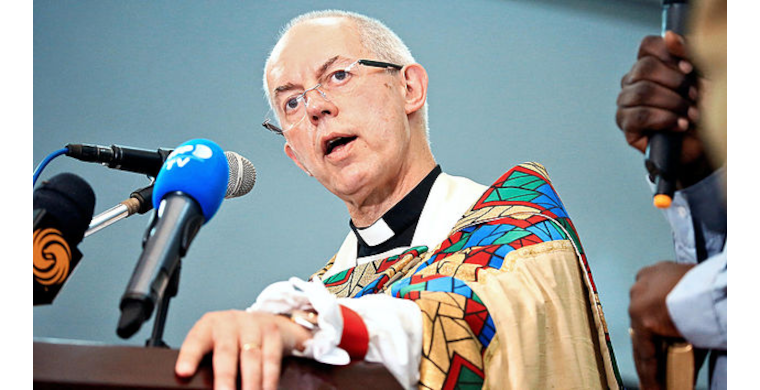Archbishop of Canterbury warns against exploiting the world's poorest in first Lambeth Conference address
Approaches to human identity and sexuality will not be solved at this conference, said Justin Welby
By David W. Virtue in Canterbury
www.virtueonline.org
July 30, 2022
The Archbishop of Canterbury Justin Welby warned that new "empires of financial, economic, scientific and technological power" risk further exploiting the world's most vulnerable people. But Welby failed to mention that Jesus himself said the poor we would always have with us, and that universal, (read socialist) panaceas to alleviate poverty have rarely worked.
The archbishop urged Anglican bishops to "look outwards" and called on the Communion to consider how the church can address the challenges of the 21st century. He drew on 1 Peter, the official scriptural book of the conference.
Prior to the 2022 Lambeth Conference, Welby said he hoped to unite the 85-million-member communion under common expressions of faith and social engagement, rather than focusing on debates over human sexuality that have divided bishops at past conferences. Bishops were to come together around the theme "God's Church for God's World." Aspects of that theme were to be presented in a series of 10 "Lambeth Calls," including science and faith, mission and evangelism, interfaith relations, climate change and human dignity.
However, controversy ignited over the inclusion of language from a 1998 Lambeth Resolution (1:10) that homosexuality is forbidden and marriage is only for heterosexual couples and unmarried people should practice abstinence.
Furthermore, over the last 30 years, extreme poverty has been cut in half. With 14 years left to go, the proportion of destitute people in the world has been reduced by 50 percent, according to U.S. Agency for International Development. It is now down to 9.2%. Globally, extreme poverty has rapidly declined.
According to World Vision Int., by 2030, as part of the United Nations' Sustainable Development Goals, global leaders aim to eradicate extreme poverty for all people everywhere.
According to the World Bank, countries with the highest poverty rates in the world are: South Sudan - 82.30%, Equatorial Guinea, - 76.80% Madagascar - 70.70%.
This is profoundly ironic in that it is Sudanese Anglican Archbishop Justin Badi who is in the forefront of the battle for orthodoxy in the Anglican Communion over human sexuality, a soul-destroying behavior more dangerous than poverty which while threatening life and limb does not affect your soul's destiny.
"Many of us come [to Canterbury] aware of what Peter calls the roaring lions; the sense - and often the reality - of attack, hostility, danger and uncertainty," Welby said.
"For those here who came in 2008, we have seen since then the impact of the collapse of Western banking systems, the end of globalization of trade, COVID-19, the catastrophe over world food prices and availability, a major war involving a nuclear-armed power, as well as hundreds of other conflicts impacting so many, and with growing force and spread, the impact of climate change.
"On top of those global changes, there have been great roaring of lions in so many of our own countries. Wars, persecution, civil disorder, poverty have struck hard at the weakest and the poorest in the flock, killing thousands who put their trust in Jesus Christ as Savior and Lord."
Some lions, he said, can be "domesticated and made to serve," as when science and technology are harnessed to provide life-saving tools like COVID-19 vaccines. Some lions, like climate change, "cannot be domesticated and tamed to serve. [They] must be slain."
"For many years, churches, provinces and dioceses have continued to work superbly in their own areas. But too often the Anglican Communion has been known best -- when it's known at all as a communion -- for looking inwards and struggling with its own disagreements."
Archbishop Welby said those questions, especially on the Christian and Anglican approach to human identity and sexuality, will not be solved at this conference.
END














